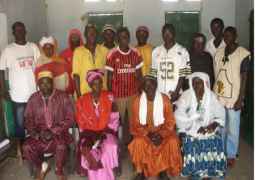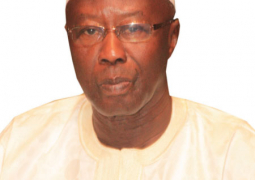The Gambia Revenue Authority (GRA) on Friday concluded a three-week training of 25 task officers from the domestic tax department of the Authority.
The training, held at the Baobab Holiday Resort, was funded by the UNDP to strengthen the capacity of participants on basic book keeping skills and the proper implementation of the Value Added Tax (VAT).
Speaking at the closing ceremony, Saul Njie, deputy permanent secretary at the Ministry of Finance and Economic Affairs, said the training, undertaken in collaboration with the UNDP, is being implemented under the project ‘Strengthened pro-poor policy, planning and budgeting capacities of national and local level institutions rooted in a human development perspective”.
According to him, during the training, participants covered basic book keeping skills such as trading accounts, income statement and balance sheet and domestic tax processes and procedures as outlined in the newly enacted Income and VAT Act 2012.
DPS Njie also expressed confident that the skills and knowledge the participants acquired from the course would enable them to successfully carry out their duties diligently in helping to mobilize the much needed revenue for the country.
He urged them to have personal commitment and passion for the job and be firm in their decisions in order to succeed in implementing the various laws that govern revenue collection.
He said the performance of GRA on revenue collection depends on its staff doing things the right way and on time.
For his part, Ansumana Trawally, Commissioner General of GRA, said GRA places high premium on building the capacity of its staff through training.
This is very cardinal in the successes they continue to register in their revenue collection efforts, he said.
Mr Trawally added that they take every opportunity at training as many staff as possible to harness the strength of their staff and turn the authority into a model organisation of highly motivated and professional staff.
He seizes the opportunity to thank the UNDP and the Ministry of Finance and Economic Affairs for providing the funds to host the training.
For his part, Abdou Touray, a representative of the UNDP, said they are well informed that the content of the training was well received by the participants.
In that case, he said, tax revenue collection as a main source of public financing is becoming increasingly a top priority to most countries, particularly The Gambia, who is heavily dependent on tax-based economy.
“The introduction of the VAT as a way of harmonizing our sales tax with other ECOWAS member states aims at bringing efficiency in tax collection and further strengthen our domestic revenue efforts to finance our national development efforts,” Mr Touray said.
The UNDP in their current programme has agreed with the Government of The Gambia under one of their strategic outputs to support the GRA to strengthen its capacity on VAT management and advocacy, he said.
The strategic outputs are out to strengthen pro-poor policies, planning, and budgeting capacities of the national and local level institutions rooted in a human development perspective.




